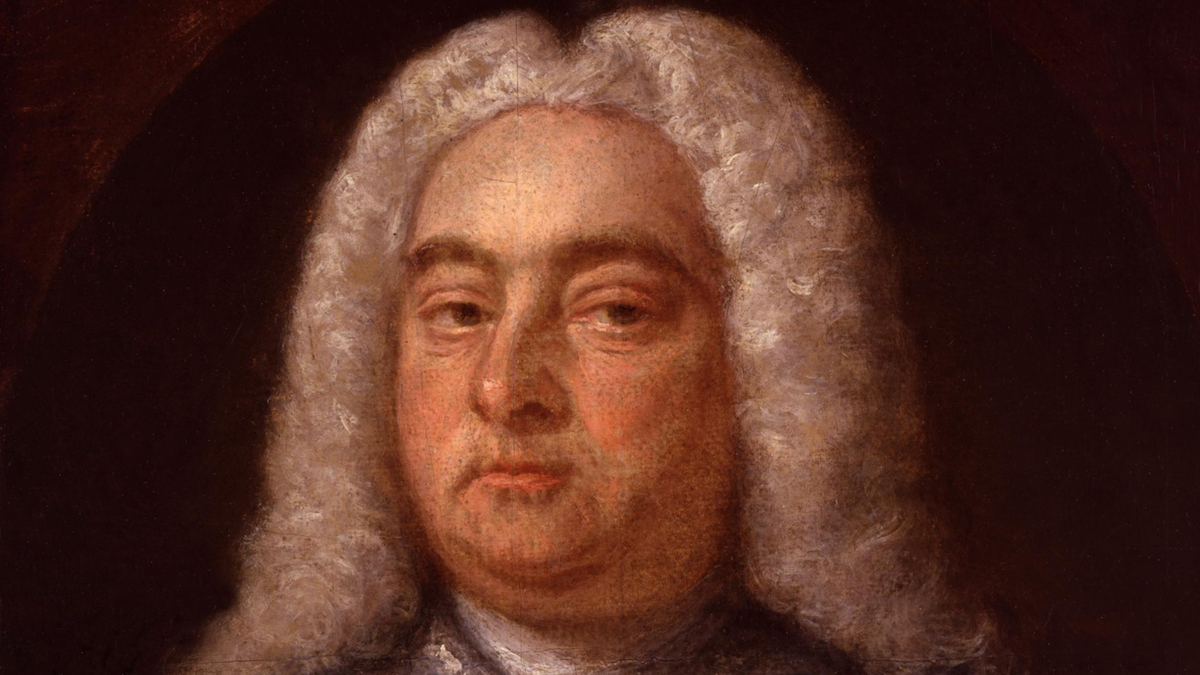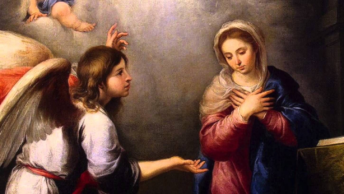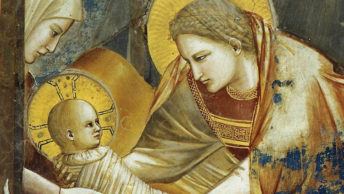An Advent tradition many people enjoy is listening to a performance of Handel’s Messiah—the musical masterpiece which contains the famous “Hallelujah Chorus.” The Messiah, which is approximately three hours in length, took George Frederic Handel a mere twenty-fours days to compose in 1742; it’s his most famous and popular work, but was just one of over 200 different compositions. However, if his father had had his way, none of these pieces would ever have existed. Georg Handel was a prominent barber—a profession which, in the 17th century, also included serving as a doctor and a dentist. When his son George was born in 1685, he decided the boy should become a lawyer. Little George himself wanted to study music, which he found fascinating—but his father strictly forbade this. Despite this, the boy secretly smuggled a little keyboard into the attic room where he slept, and each night—while the rest of the family and the servants were asleep—he taught himself music and practiced for hours, becoming quite proficient.
A few years later George’s father took him along on a visit to the estate of a local duke, where the boy was lifted up onto an organ bench. Even though he could barely reach the keyboard, George shocked and delighted everyone by playing the instrument beautifully. His father suddenly realized how talented his son was, and when the duke offered to arrange for the boy to begin taking formal music lessons, he gave his assent. As the saying goes, the rest is history (Msgr. Arthur Tonne, Stories for Sermons, Vol. 9, #68). One of the world’s greatest musicians didn’t, as a boy, merely wish or hope for a chance to use his immense talents; he went to great lengths to prepare himself—and so when the opportunity came, he was ready. In the same way, Jesus is calling us to be ready for His return—and the only way we can do this is by putting our faith into practice each day.
On the First Sunday of Advent, the Church reminds us of the need to be prepared for the Lord’s Second Coming—for the date of the end of the world is a secret known only to God, and theoretically could occur at any time. After using the example of a homeowner staying awake so as to guard his home against a thief, Jesus (Mt 24:37-44) says, “So too, you also must be prepared, for at an hour you do not expect, the Son of Man will come.” This is bad news only for those who live their lives without God; as the prophet Isaiah (2:1-5) announces, the day of the Lord will be a day of blessing for His people, and a time of true peace and justice throughout the world. As St. Paul says in the Letter to the Romans (13:11-14), our salvation is nearer now than when we first believed—but if we are to accept this great gift, we must set aside worldly behavior and concerns and instead live by the values of God’s Kingdom, putting on the armor of light and conducting ourselves properly. As long as our hearts are open to God’s grace, we will know what we need to know, and be given the strength to do what we need to do, in order to be ready for our encounter with the Lord.
Throughout history there have been attempts to figure out or predict when the Second Coming would occur; as early as the 2nd century, some Christians were announcing that the world was about to end. All these predictions, which tended to multiply over the last 200 years, have all had one thing in common: they were wrong. The world may be more sinful and self-destructive today than ever before, but there are no definitive signs that it will be ending anytime soon; as Jesus once said to the apostles, no one knows that day or hour except God the Father (Mt. 24:36). Even so, people have come up with strange ideas and unfounded speculations—including something called the Rapture, in which believers will supposedly be lifted up or evacuated from the earth at Jesus’ return, so as to be spared the terrible tribulation that will occur during the reign of the antichrist. The Gospel passage from Matthew (24:37-44) is often used to support this mistaken idea, for it says that at the coming of Christ, two persons will be out in the field or grinding at the mill; one will be taken, and one will be left. What rapturists conveniently ignore is Our Lord’s words at the beginning of this Gospel passage: “As it was in the days of Noah, so it will be at the coming of the Son of Man.” What happened in the days of Noah? He and his family— eight persons in all—entered the ark and were the ones left behind and saved; those who were taken away by the Great Flood were the sinners who experienced God’s judgment.
We’re not supposed to look for a mythical rapture to save us from the challenges of being a Christian; the Lord wants us to do our best to follow Him despite the problems and worries of life, and to continue bearing witness to Him even as the world seems to become increasingly hostile and rebellious. Jesus spoke of how those of His servants busy with their duties upon His return would be richly rewarded (Lk. 12:37); even as we read the signs of the times, we must continue being light for the world and salt for the earth. In practical terms, this means praying frequently and attending Mass and receiving Communion regularly; without this solid spiritual foundation, the trials and troubles of life will sooner or later overwhelm us. Being ready for our Master’s return also means seeking His guidance so we’ll know exactly what He’s asking of us in any given situation, and how to respond when our faith is questioned or opposed. Preparing to meet the Lord—whether at the end of the world, or at the moment of our own death—also means making our faith a priority. One of the happiest funerals I ever attended was for a man who died on a Sunday afternoon, after having gone to Mass that morning and having prayed the Rosary right after lunch; his family had the joyous consolation of knowing that he was spiritually prepared at the final moment of his life. I’ve also personally seen a similar joy on the part of a wife who convinced her husband to go to Confession just a week before his unexpected death, and a grown daughter who arranged for her terminally ill father to confess his sins after being away from the Church for many years.
Jesus calls each one of us to be ready for our encounter with Him, and the Church uses the beginning of this holy season of Advent as an annual reminder that our earthly lives should have no higher purpose or goal than preparing ourselves for eternity. This doesn’t require us to gain an historic reputation, as happened with George Frederic Handel, but it does mean living our lives as a hymn of praise and gratitude to God, doing our best to trust in His mercy, proclaim His truth, and respond to His love.








